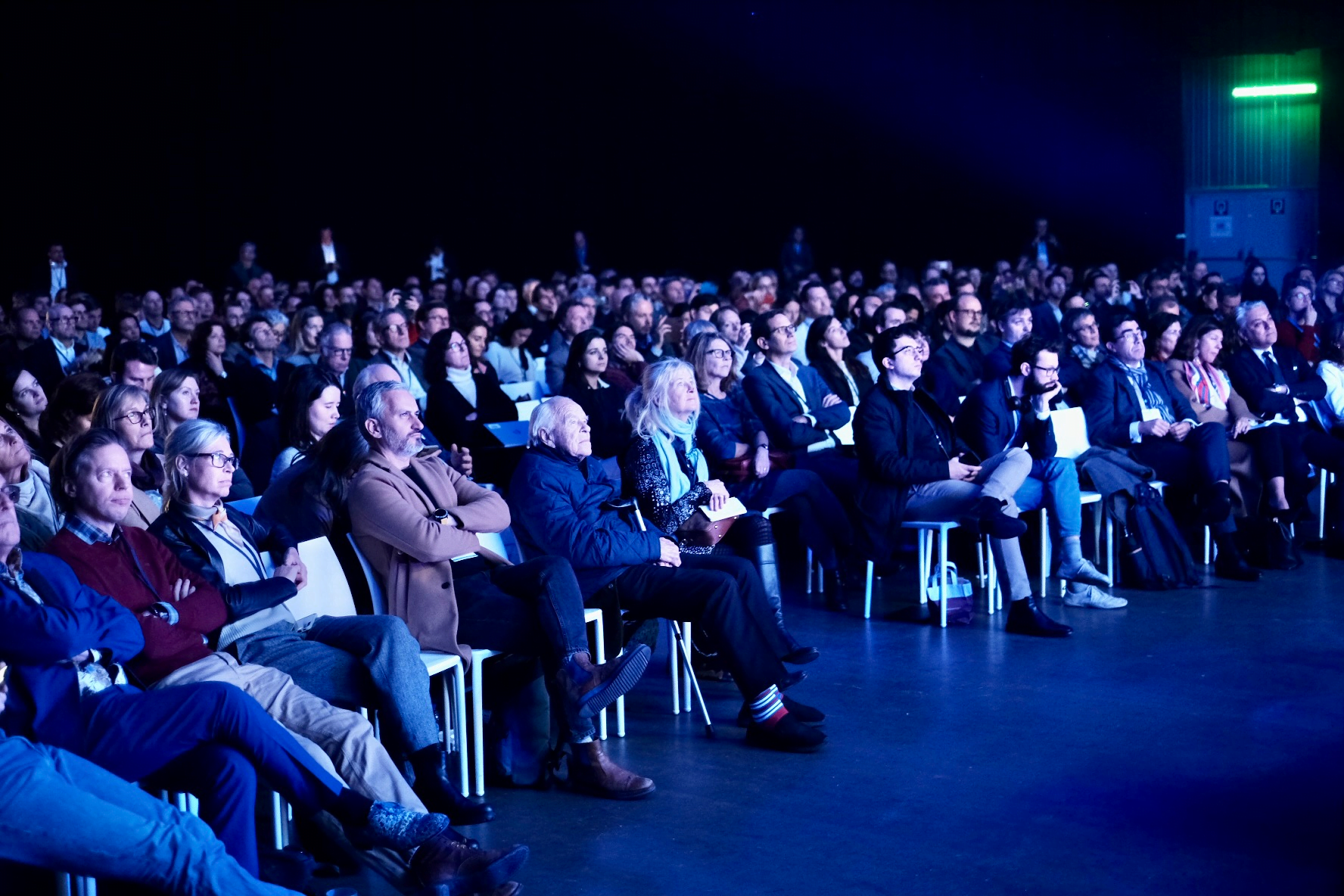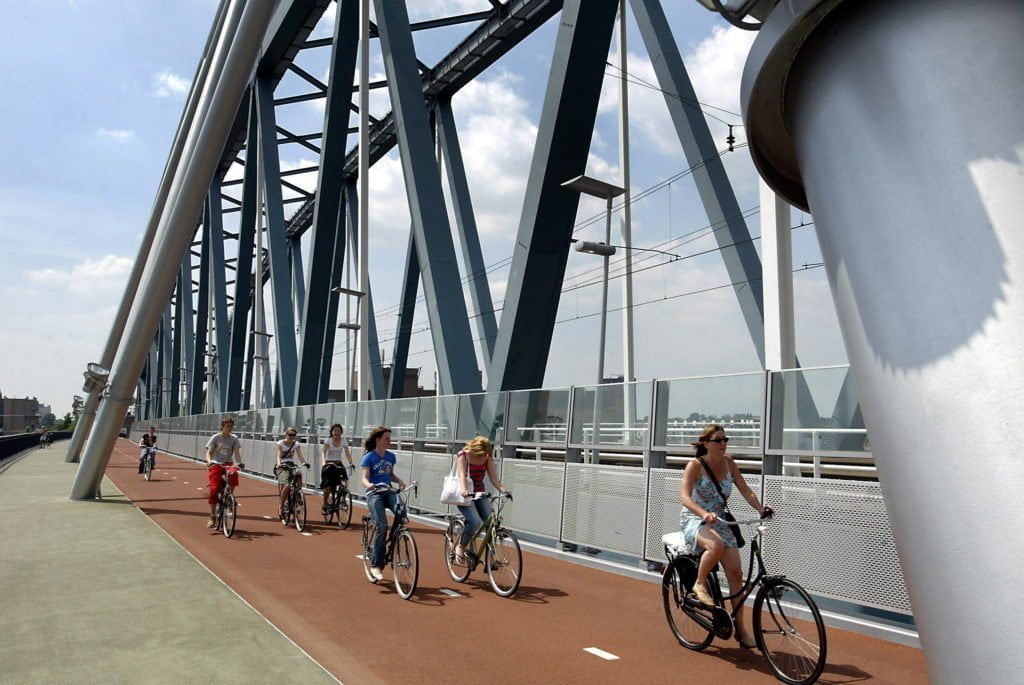'It’s the economy, stupid!': De- and re-constructing urban mobility imaginations at the Annual POLIS Conference
On 29 November, POLIS’ Annual Conference opened with a bang, bringing together urban mobility decision-makers from across Europe to explore just how sustainable transport is supporting economic growth, social cohesion and decarbonisation agendas.
The Annual POLIS Conference is the leading European event on sustainable urban mobility innovation. From accessible public transport to logistics innovation, shared and digital mobility services to the future of the transport workforce, it provides a unique forum for cities, regions, academics, operators and others from across the industry to share what they have been doing and learn from others.
Europe’s transition to sustainable urban mobility is at a crossroads. Technological progress, developments in international policy, and scientific advances have the potential to decarbonise, decongest, and make our cities safer.
However, we have reached an impasse. As climate goals loom and mobility services continue to marginalise vulnerable communities, this is a status we cannot afford.
As study after study exposes, there is a clear positive relationship between the economy and social welfare and changes in urban design and mobility systems. Yet, street space reallocation, vehicle access regulations, speed limits, and other progressive approaches to transport, have sparked deep discord, discord between groups, who ultimately have the same aim - livability for all, and generations to come.
Fostering clear dialogue, evidence-based decision-making, and cross-sector collaboration are essential for moving forward. Opening with the Plenary 'It’s the Economy, Stupid!', the POLIS Conference did just this.
'Leuven is a city with a clear mission of sustainable and inclusive mobility. Selected as one of the 100 climate-neutral and smart cities by the European Commission, we see ourselves as Europe’s ‘future lab’, where solutions are developed first. Our Leuven approach is built on a collaboration between residents, institutions, and organizations and involves the public in important decisions,' said Mohamed Ridouani, Mayor of Leuven, opening the Conference, alongside Karen Vancluysen, Secretary General of POLIS.
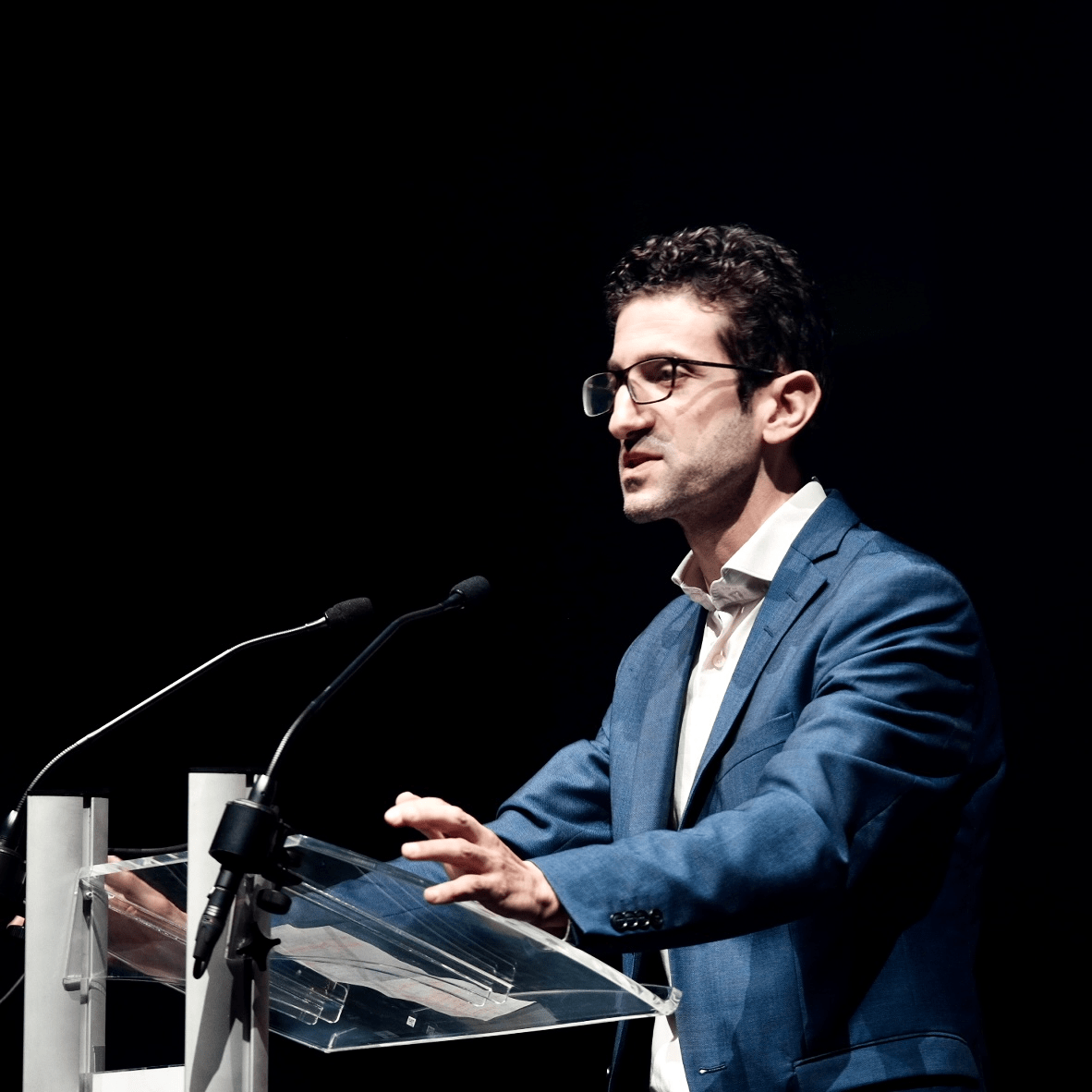
Mohamed Ridouani credit:
Berten Steenwegen
'A thriving economy and sustainable mobility can go hand in hand and even mutually reinforce each other. We should question the discourse which labels them irreconcilable opposites,' said Vancluysen.
The plenary brought together leading voices from the public and private sectors for a much-needed (no-holes-barred) discussion and debate, unpacking the myths and misnomers surrounding sustainability agendas, examining the data, and illustrating that the economy cannot be a valid argument to water down ecology.
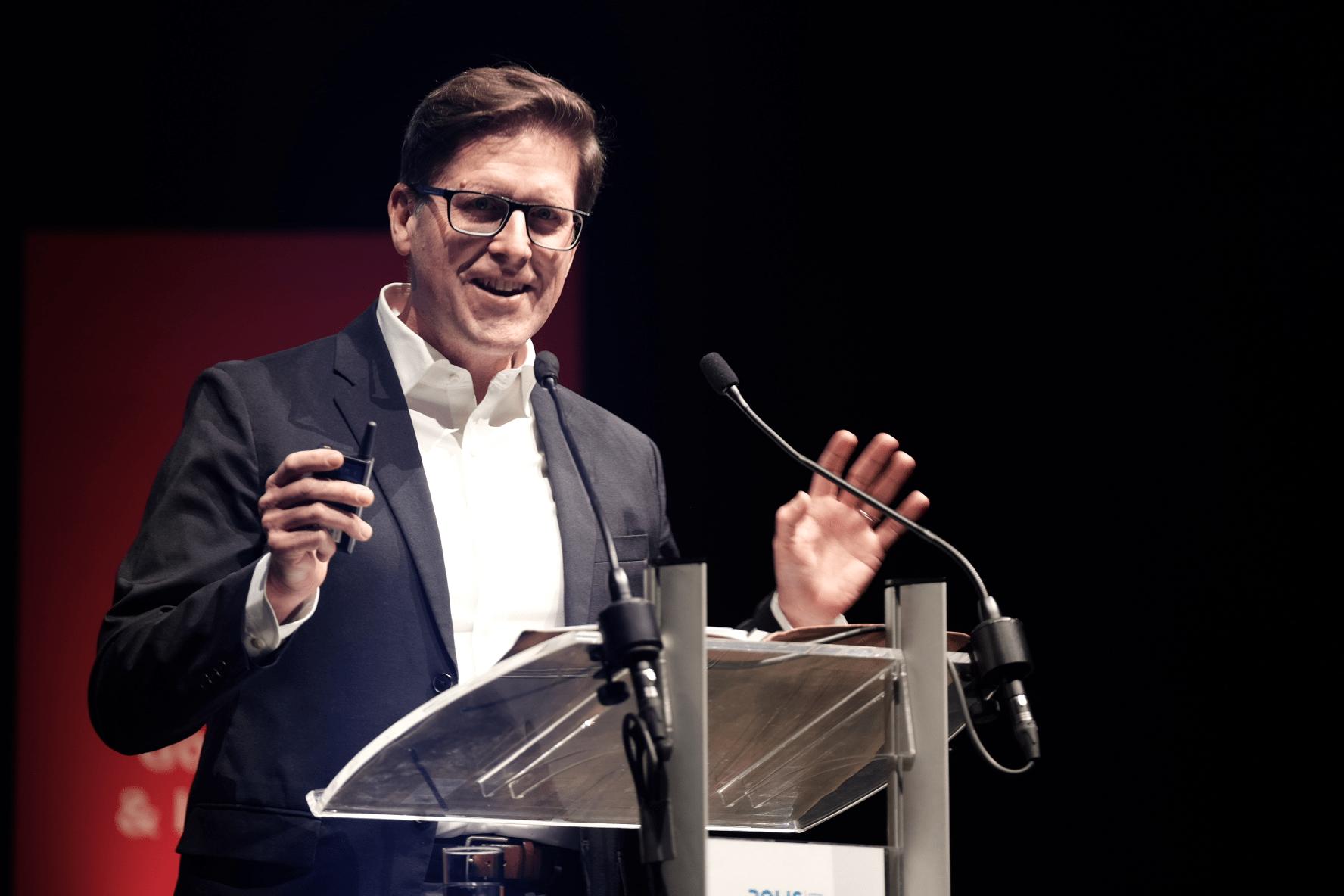
Philippe Crist, credit:
Berten Steenwegen
High-level speakers included Magda Kopczyńska, Director-General for Mobility & Transport, European Commission, and Philippe Crist, International Expert Mobility Innovation & Foresight, Thinktavist, followed by a panel which included:
- Koen Kennis, Deputy Mayor for Mobility, City of Antwerp
- Hannah van Amelsfort, Senior Consultant, Goudappel
- Luca de Meo, CEO, Renault Group and President of ACEA
- Kevin Mayne, CEO, Cycling Industries Europe
- Fabien Nonnez, Global Business Development Leader Supply Chain, Inter IKEA Group / ALICE
- Harriët Tiemens, Director Metropoolregio Arnhem-Nijmegen
'Sustainable mobility solutions are not "nice to have" anymore - it is a must-have. Our growth ambition is achievable by becoming more affordable, more accessible and more sustainable for many people,' says Fabien Nonnez.
'Many studies have shown that city centres function better economically if facilities related to walking and cycling are attractive, and cars are banned as much as possible. The 15-minute city goes one step further and, in addition to all the benefits of active mobility, will also be one of the solutions to the costly traffic jam problem,' says Harriët Tiemens.
'Taking on the many challenges of urban mobility will be a team effort. When it comes to solving the equation of air quality, decarbonisation, traffic congestion, resource sustainability, affordability and job protection in Europe, no single actor can pretend to have a solution alone. The automotive industry is part of the solution and be sure that we are no short of ideas! Being here today is a way for me to express our industry's willingness to engage constructively and come up with answers up to the European citizens' and consumers' expectations,' says Luca de Meo.
'The transition of urban mobility demands a whole ecosystem approach, not just a focus on individual modes changing their technologies. We will boost local economies and create new jobs, with new skills, if we recognise that every vehicle movement and every multi-stage trip demands infrastructure, parking, electricity supply, repair, finance, digital connectivity, promotion and more. That is equally true for cycling as it is for cars or public transport,' says Kevin Mayne.
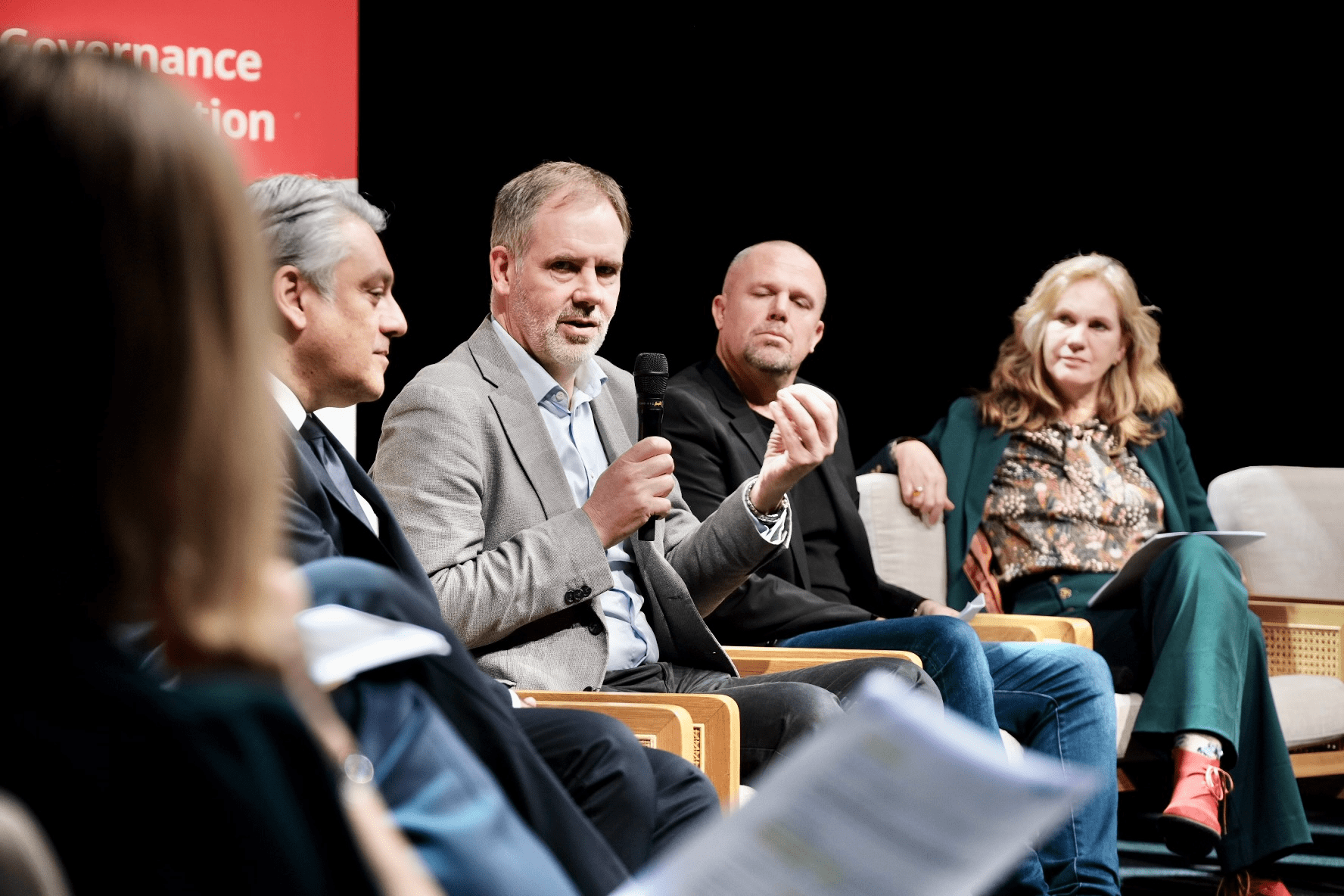
The panel discuss: credit:
Berten Steenwegen
POLIS is also delighted to launch the latest issue of its publication ‘Cities in motion’. This issue, titled, ‘A City for Whom?’, charts how pioneering concepts like mobility hubs and integrated ticketing are paving the way for the greener, smarter and more inclusive metropolises of the future. We also reflect on the importance of political leadership and cooperation in guiding and maintaining this transition, interviewing some of Europe’s leading mobility minds and mobility decision-makers.
Watch our Opening Plenary below:
